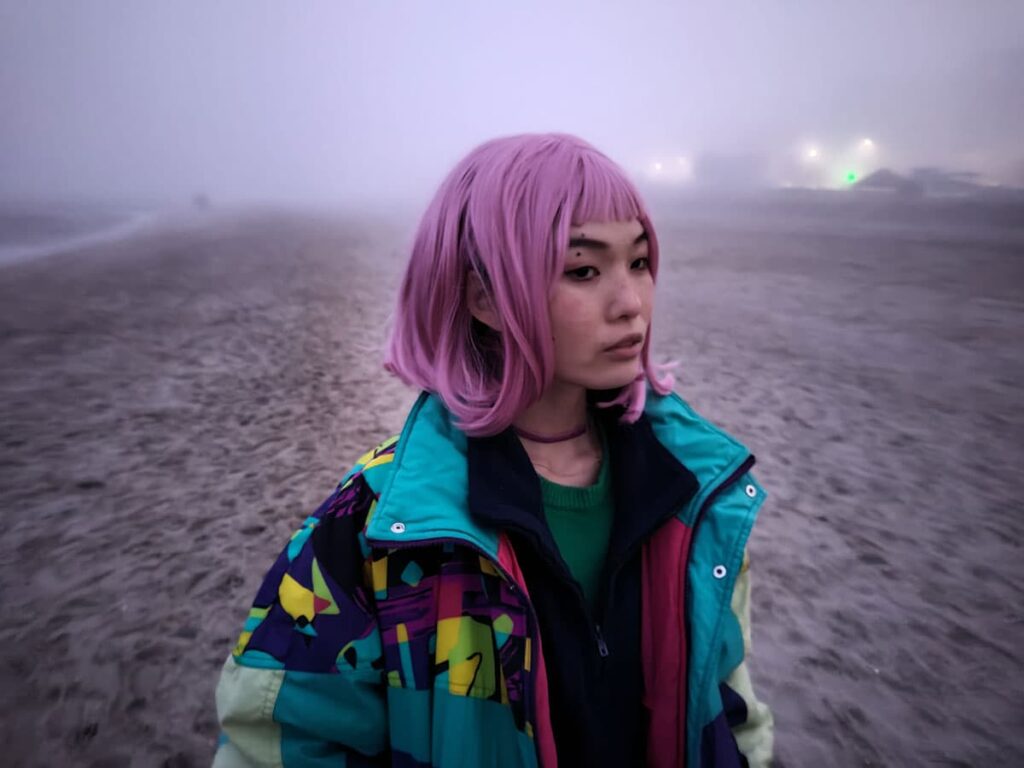
Free spirit, an artist who creates without regard for conventions – Sabiwa, originally from Taiwan, currently leaving in Berlin. She makes uncannily visual music that feels like listening to the most surrealistic stories. Here words become abstract and exist in a world that may not necessarily be real from which they can fall into another tunnel of (un)reality.
She produces, records and dissects sounds from natural and synthetic sources, making them interact with complex texture and abstract patterns, also using her voice processed as guiding path in her compositions. She is also curating the live visual for her performances. She composed soundtracks for art performances and documentaries, collaborating with numerous artists and musicians. She is actually working in between Berlin, Taipei and Torino as audio-visual producer.
Her latest album, “Island no.16 – Memories of Future Landscapes,” captivated me to the point where I couldn’t resist the pleasure of reaching out to the artist to learn more about her world, approach to creation, and self-realization in the realm of art.
Artur Mieczkowski
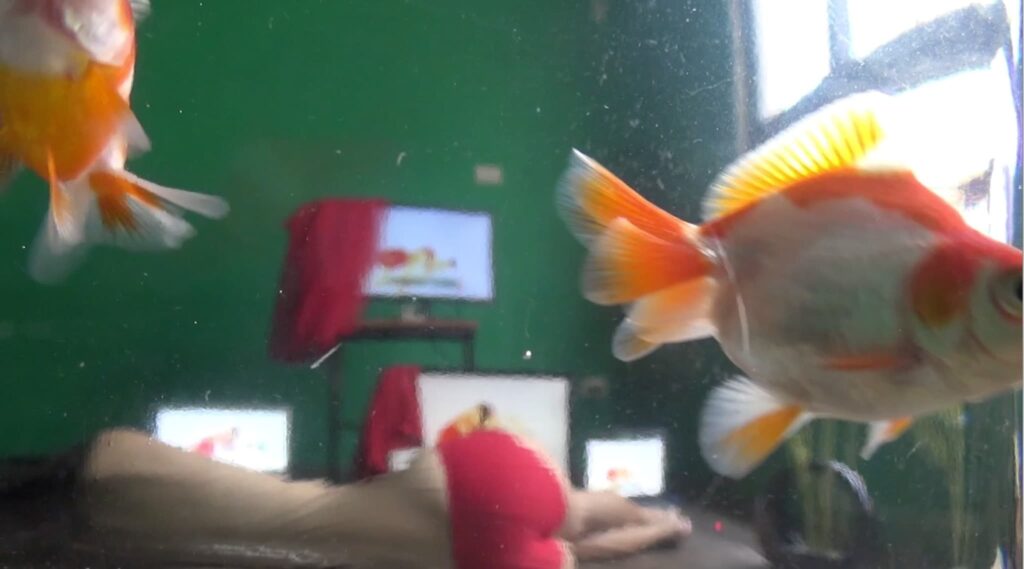
Artur Mieczkowski: Thank you for agreeing to this conversation. What does music mean to you? When has it started? What drove you to creating such unconventional sounds?
Sabiwa: For me music is more like a source or material to hook some memories from the brain. because it’s so abstract and so you can shape sound to whatever, from just push people’s body to dance to triger certain memories to create some new emotional landscape.
A.M.: Your work has a very strong visual quality for me. Through sounds, you are able to evoke incredible images, even inaccessible worlds. Where do you draw inspiration from for your creative process?
Sabiwa: I’m super happy that you felt the visual inside my music. I’m a visual artist as well and so for me sound and visual are completely connected together. Often in my music, I just want to recreate a little moment I enjoyed during a trip or a little walk in the night or a tea time in my grandma house, what I saw and heard from the environment.
A.M.: You also engage in the visual aspect of art. Your performances are audiovisual, so in your opinion, to what extent does it enhance the message of your music, which is already very visual in itself?
Sabiwa: I don’t know how to explain this in a more concrete way, but for example, in my live set when the music brings the idea to a liquid, underwater world, but sometimes it can be very complexed like mixed with a some metallic noise or beats and changing constantly, I want to also use the abstract visual to create this mood and to emphasis the feeling of we slowly loses the human shape and floating from one world to and other. I think with the visual together it controls a different path and speed for audience to follow. To give more idea to get into a trip for example. Because sometimes by only sound or video I couldn’t completely convey my vision and so for me audio visual is the most completed way for me to express.
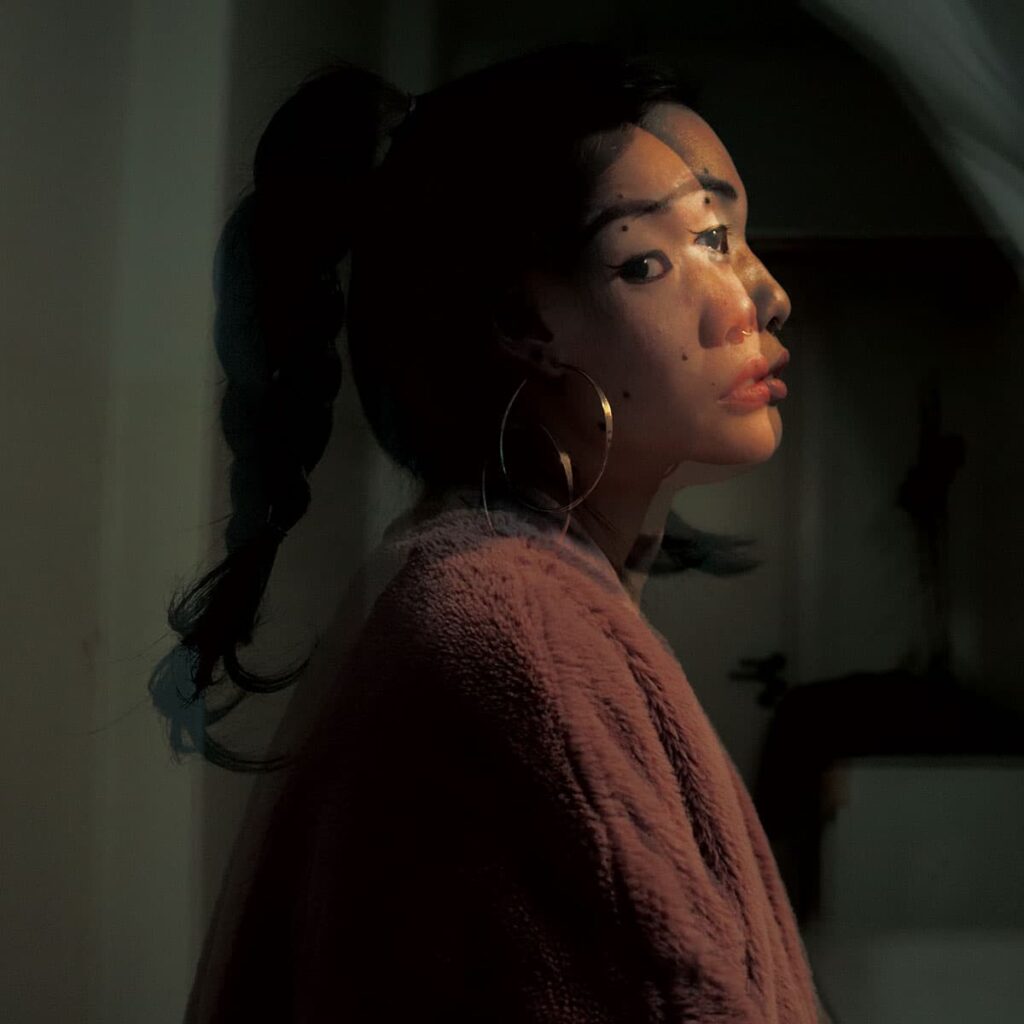
A.M.: Can you tell me about your experience in filmmaking? What have you worked on so far? Are you currently involved in any film projects?
Sabiwa: When I was in Taiwan since after high school I used to do photography around and recorded some footage to preserve some kinda of moments I found it’s touching me. But I’ve never really learned film till last year~ so from last year I’m studing BA in film and motion in Berlin now.
A.M.: It could be said that your creations are based on ritualistic elements. You explore topics such as reincarnation and funeral ceremonies – on the album 輪迴, you used recordings from your grandfather’s funeral ceremony. It’s all quite intimate. Does delving into such personal aspects make you feel overly exposed to the audience?
Sabiwa: Yeah a bit~ but i think most of people who listen to the album do not have personal contact with me personally so I feel it’s quite separate at the same time.
A.M.: Your latest album “Island no.16 – Memories of Future Landscapes” made a tremendous impression on me. Despite deviating musically from your previous releases, one can still sense your intuitive and even abstract pursuit of sound within it. From where did you draw your inspiration this time?
Sabiwa: This new album was not really done for producing or meant to be published initially. This album started as just a collection from my own memories and live surroundings at many periods, basically like a little diary. This project I’ve done and just left it in my laptop many years ago. But during the pandemic I was back in Taiwan for a long time. and I started to go through and clean up all my stuff in my house in Taiwan. And I found a lot of stuff I wrote from a long time ago and it’s quite inspiring somehow to find those stuff I recognised but I’m not the same person anymore but the connection in between the memory is really hooked me a lot. So I found this project back as well and started to get inspired by this idea and started to edit this project again and finally I showed it to some friends around, and I got quite a lot of nice feedback and also finally got a bit of confidence to send it out to the label. Surprisingly, the label Phantom Limb immediately gave me positive feedback and want to publish it at the end. But actually after the label gave positive feedback I was still struggling a bit and don’t know if I really want to publish it because I know this album is wired and personal and experimental than all the albums I have done. So I hesitated for a long long time before i sent the final version to the label. But anyway! at the end It still came out! and I’m very happy with it ;)).
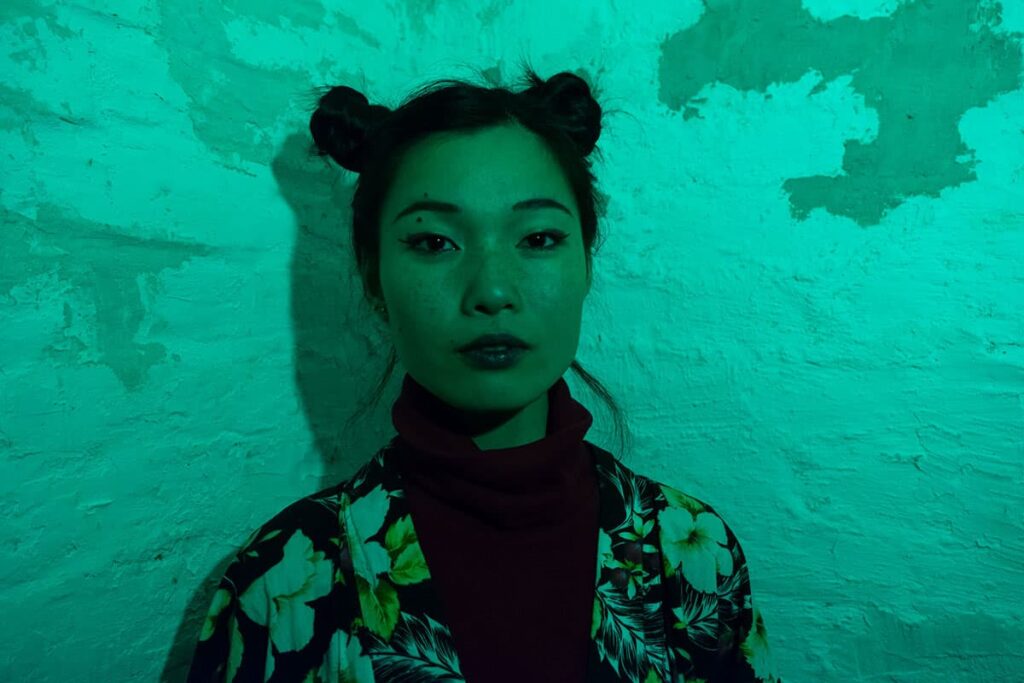
A.M.: The concept of this album is an imagined island where spoken word, gender, and identity are blurred or nonexistent. It perfectly aligns with the sound, its abstract nature, and its ambiguity, with a dreamlike quality. What is the album’s message in your opinion?
Sabiwa: In the album I collect a lot of stuff from what I found in all my diaries from I was little for the concept. As a non language way of communicating. From this album I think I want to know and experiment more about how and what people would see and feel when they listened to each chapter.
A.M.: When creating new material, do images, the narration of the story, or sounds come first to your mind? What does your creative process look like?
Sabiwa: It’s a super long process for this album, I had the draft from more than 4 years ago and slowly changing the idea, so I can’t really tell how the process is like. because It’s something I do in different period with very different mind set.
But every album at the beginning I just collected sounds from time to time as a sound diary for a period and then constantly go through them.
It feels like every time I shooted some footage after many years I watch it again. often, I see the different point from the first time I watch the footage or why I shot it.
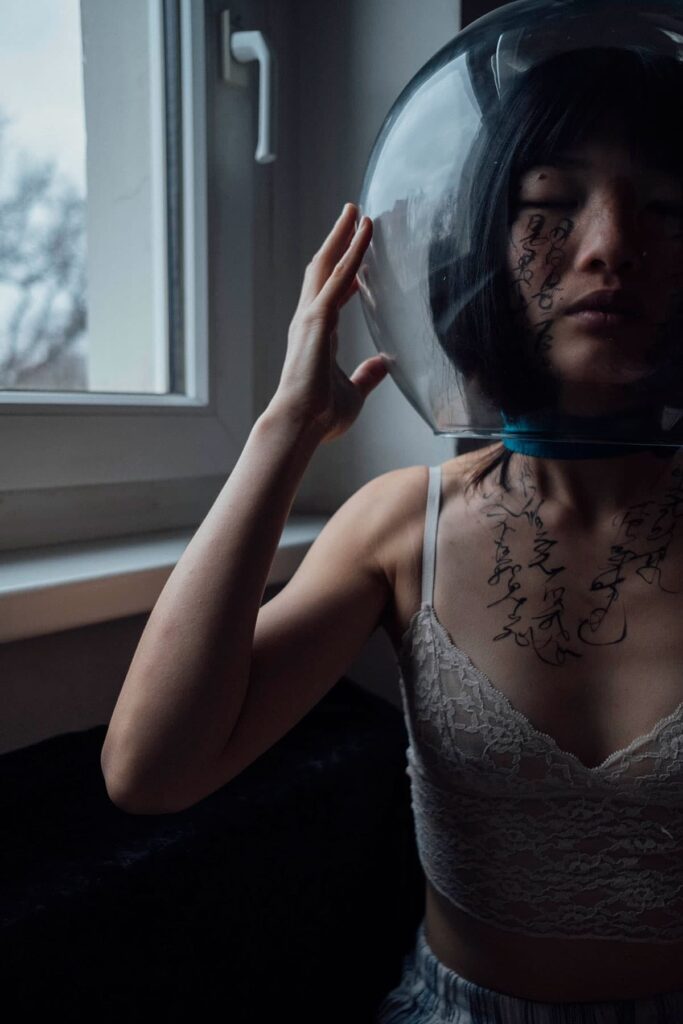
A.M.: “Dog Smells Your Future” – I love this track, so much is happening here. Starting from the gongs to other traditional percussion instruments. Birds chirping and strange vocal incantations appear. Can you tell me more about the concept behind it?
Sabiwa: This is a track I tried to describe a strange trip with my family to the sea side and then to the mountain for a couple days with another family, our neighbor. It’s very rare we have a family trip all together. However, I often need a quiet moment so I used to take a long walk in the late night by myself to digest all the craziness, unable to communicate or random super drunk talking and try to enjoy the peace at the same time to calm myself down to continue this chaotic family trip. But at the same time when I take a walk in the night there are so many creatures talking constantly in their own way which is almost like the same as during the day with my family, the drunk talking the misunderstanding and the the people tried to talk for filled the quiet space.
A.M.: Supposedly, “Christal,” is based on a forbidden folk melody about the independence of Taiwan sung by your uncle. The resulting mixture creates an incredible impression. What guides you in selecting narratives like that for your compositions?
Sabiwa: In “Christal” the vocal recording at the beginning is contributed from Kink Gong which he recorded in Laos. but I think there are some misunderstandings on the internet. So the recording from my uncle is the one at the end of the track of “Hermaphrodite”.
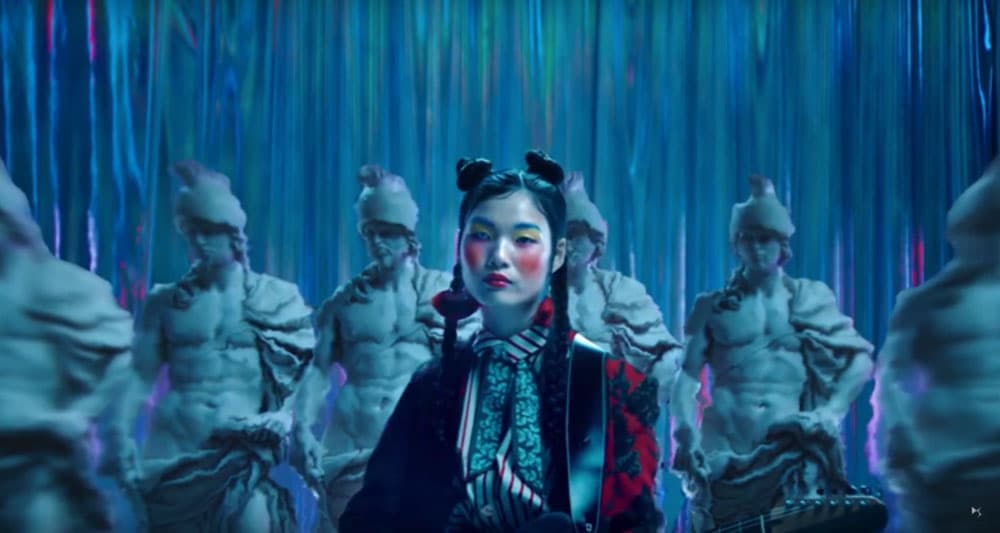
A.M.: You come from Taiwan. What is the experimental music scene like there?
Sabiwa: There are not much experimental scene going on in Taiwan but the most experimental sound scape you can hear is maybe from the radio or TV channel which is targeting for old people. Pure randomness but sometimes super cool! it’s a very random mixture of selling things, people call-in talking randomly mostly nonsense , and also lovely out of tune karaoke with often bad single distortion. Often my grandma just put it go on for all day made me felt very impressed.
A.M.: Could you recommend some musical projects from Taiwan that would be worth a listen in your opinion?
Sabiwa: Music project from Taiwan TBH I don’t know much. But I think you can check out the sound tracks from 霹靂布袋戲 it’s a series I’ve watched for a really long time since I was a kid. Super cool vocals and crazy drama stories. And the sound is crazy tho.
A.M.: You are currently living in Berlin. How would you compare its art scene to the art scene in Taiwan?
Sabiwa: Yes! I based in Berlin ATM. I think after pendemic in Taiwan there are more and more underground party scenes going on but for experimental it’s still difficult to survive so far. I think in Berlin you can see a lot of events with various types, although moneywise it’s not so ideal and also a bit difficult to survive just by doing art but it’s way much more open and more fun to see different things going on for sure.
A.M.: You have a musical education, you played the cello. Does this allow you to more easily transcend the boundaries between the academic and the exploration of new territories in music?
Sabiwa: Well~ I did classical cello and played in the teen orchestra when I was young for a couple years. But I don’t really have any academic training after that. Recently I saw some reviews written that I had academic in music. I was a bit confused. But anyway I started to explore music again after the cello because I started to experiment with video art and mix some recordings I got but I want to make better sound for the video. At that time my husband showed me a lot of his crazy noise music and also showed me ableton so I started to get into electronic music since that, and started to explore and make a lot of recordings and experiment with whatever on the computer.
A.M.: You recorded an album with KINK GONG. How did your collaboration come about? What did you draw upon when playing and recording these tracks?
Sabiwa: With my husband we lived before just in the same place with kink gong, so we are friends and often hung out in his flat and listened to his recordings or some music we like. Also he has a huge collection of super cool instruments in his house! so sometimes we just took those instruments and made some recordings randomly. And last year, he invited me with my husband and many other artists friends to join his project of creating some pieces based on all his recordings. and we start to go through all his collections from the minority groups and create the remix for him and after that he also contributed one track he recorded from Laos to my new album.
A.M.: Are you currently working on any new music?
Sabiwa: Yes;)). Recently trying slowly to create something more chill and ambient stuff. Especially last week went to the concert from KMRU. Was super inspiring and motivated!
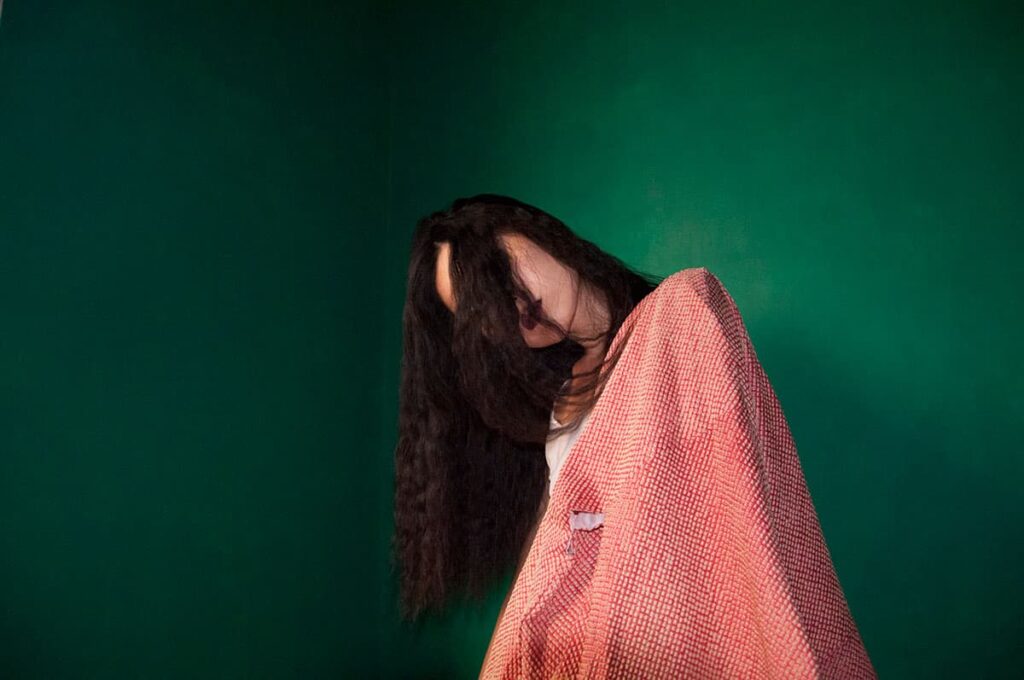
A.M.: What “Sabiwa” actually means?
Sabiwa: well~ in Taiwan most of people has a name with 3 words and in Taiwan most of my friends call me Wasabi so when I came to Europe, here people put the family name behind the first name. So I put Wa as my family name to the back as my stage name. XD
A.M.: Thank you very much for the interview and I hope to see you soon at a concert in Poland.
Sabiwa: Thank you as well~ I hope toooo! never play in Poland yet would really love to go!